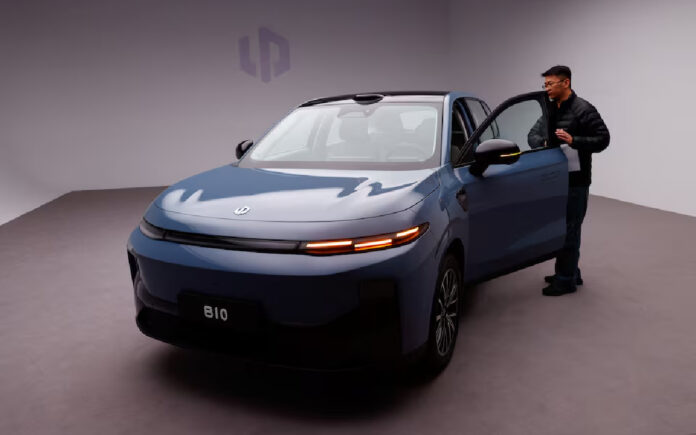Shenzhen: Passenger car sales in China continued their upward trend in April, marking a third straight month of growth with a 14.8% year-on-year increase, according to data released by the China Passenger Car Association (CPCA) on Sunday. The surge comes as Beijing’s trade-in subsidies for older vehicles, particularly for new energy vehicles (NEVs), help bolster consumer demand amid rising geopolitical tensions and newly imposed U.S. tariffs on Chinese goods.
Total passenger vehicle sales reached 1.78 million units in April. From January to April, cumulative sales hit 6.97 million units, reflecting an 8.2% increase compared to the same period in 2024.
New energy vehicles, which include electric vehicles (EVs) and plug-in hybrids, played a central role in the market’s expansion. NEV sales soared by 33.9% year-on-year in April, accounting for more than half—50.8%—of total passenger car sales for the month.
This growth is largely attributed to the Chinese government’s incentivized trade-in scheme, which offers more generous subsidies for NEVs than for traditional gasoline-powered vehicles. As of April 24, the program had subsidized 2.71 million vehicles, serving as a buffer against the negative impact of higher U.S. tariffs and supporting domestic consumer sentiment.
Also Read | UK Moves to Curb Immigration with New Graduate-Level Visa Rules and Local Training Requirements
However, despite robust internal sales, China’s car exports continued to falter. CPCA figures revealed a 2.2% decline in exports in April, following an 8% drop in March, reflecting growing international trade headwinds.
Meanwhile, domestic interest in automated-driving systems appears to be waning. The CPCA noted that while these systems were once seen as a major selling point, they are no longer driving consumer decisions as strongly. Earlier this year, leading automaker BYD announced plans to equip all its models with the advanced “God’s Eye” driver-assistance system at no additional cost, intensifying competition in the intelligent vehicle segment.
Also Read | Fugitive Ex-Panama Leader Martinelli Finds Political Refuge in Colombia
Yet enthusiasm for these features has been tempered by recent regulatory scrutiny. Chinese authorities have begun cracking down on misleading marketing practices related to autonomous driving, especially those using terms like “smart” or “autonomous” in advertising. The move follows a fatal accident in March involving a Xiaomi SU7 sedan, which caught fire after crashing into a cement pole just seconds after the driver disengaged the assisted-driving system.
As China navigates both internal policy shifts and external trade pressures, the automotive industry remains a bellwether for broader economic sentiment, with NEVs at the heart of the transition.



